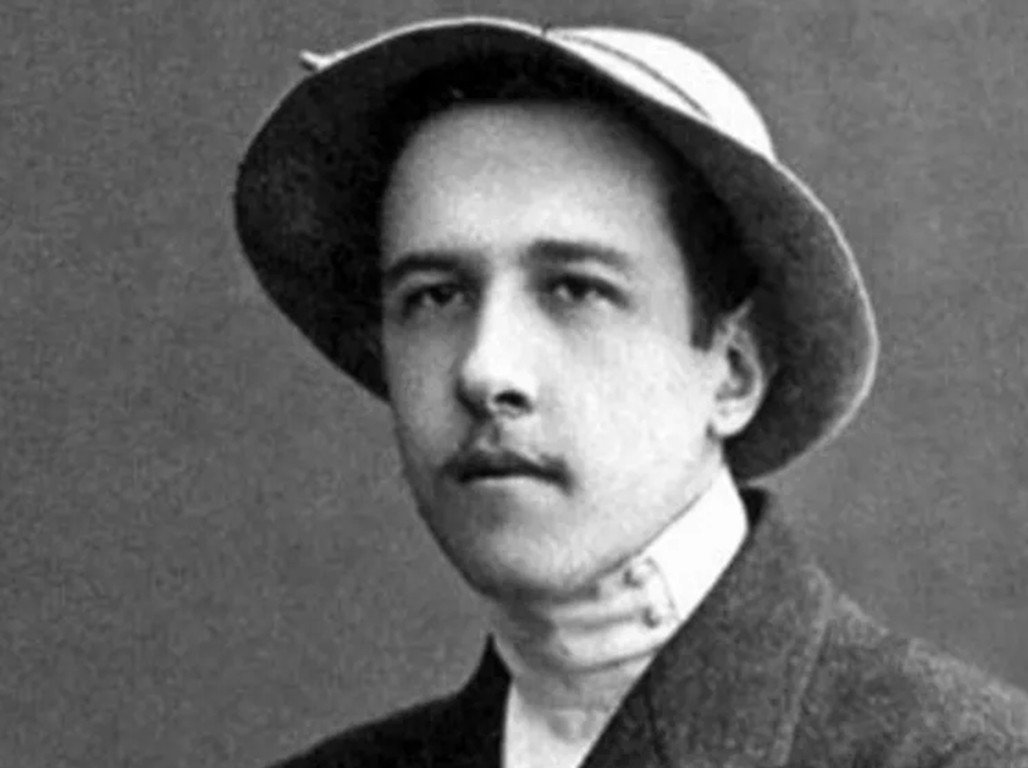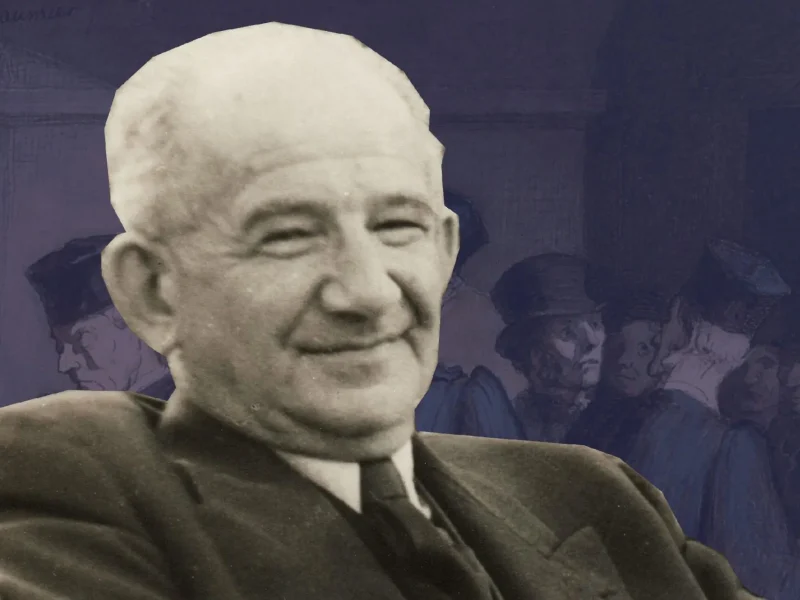Oh man, have you heard of Alexander Chayanov? This fella hardly gets the limelight, even though he made groundbreaking contributions to agrarian economics and countryside sociology.
You see, while most folks were all about industrial growth and market dynamics, Chayanov piped up and declared, “Hang on, we might be misunderstanding village economies!” No joke, this man was way ahead of his era. He urged us to detach from the traditional capitalist perspective when assessing miniature agricultural setups.
His trailblazing ideas? They were an eye-opener, countering the conventional narratives about farming economics. The central concept? Toil distribution within a peasant household isn’t just for profit. Nope, it goes deeper than that. He claimed that labor commitments are the outcome of balancing the tiresome nature of work against family requirements.
The chap proclaimed, “These agriculturalists aren’t laboring merely for monetary gains. They’re committed to nourishing their families, ensuring a satisfactory lifestyle, and fortifying their villages.” Remember, this was at a juncture when most economic thinkers considered farmers as micro-enterprises.
Talk about resilience; Chayanov put forth these theories amid challenging socio-political conditions. We’re talking pre-revolutionary Russia evolving into the stringent Soviet era. The environment was no joke!
Regrettably, his unconventional insights didn’t sit well with Soviet authorities, leading to his arrest. Quite unfortunate. Nevertheless, his intellectual legacy endured.
Concepts like the “Labor Saturation Principle by Chayanov” greatly impact our contemporary comprehension of agrarian labor dynamics. His intellectual heritage offers us an expanded grasp of people-focused economics, where the essence is not just on monetary metrics but on individuals and communities.
Present-day theorists and economic minds revisit his ideas, give them a good shake, and recognize, “Gee, this individual had a point!” He continues to be cited in current economic discourse and ecological farming models. Even organizations involved in community development are adopting his family-centric viewpoints, contrary to seeing minor farmers as small profit-centric operations.
The Unconventional Brilliance of Alexander Chayanov in Agrarian Economics
First off, the guy came up with the Theory of Peasant Economy. You know, at a time when economists only knew how to talk in terms of capitalism and proletariat, Chayanov brought the limelight to the peasant. The man emphasized that peasants are a unique class of individuals, driven not by profit but by familial responsibilities. In simpler words, they’re not out to become the next Bill Gates; they’re just trying to feed their families.
Ah, the Chayanovian Model. Forget about supply and demand curves for a sec. This is about balancing work and rewards. The idea is that there’s this fine line between working your fingers to the bone and enjoying the fruits of your labor. Peasants, according to Chayanov, weigh the toil and trouble of labor against the rewards, which are not always monetary.
How cool is that? He even gave us the term labor-distribution to talk about this balancing act. Labor-distribution sounds pretty fancy, right? What it boils down to is how much sweat you’re willing to pour in versus what you’re hoping to get out of it. It’s like asking, “How many hours should I toil in the fields so my family can have a hearty meal?”
This isn’t just economics; it’s also a bit of psychology and sociology wrapped up in financial terms. See, Chayanov was the OG in multidisciplinary thinking long before it was a buzzword in academic corridors.
Then comes his focus on rural sociology. The man didn’t stop at economic theories; he wanted to understand how rural communities actually live and work. And don’t even get me started on his influence on modern-day sustainable farming.
If you’re wondering about stats and numbers, well, he gave us none. Yup, his work was so out there that he didn’t feel the need to back it up with hard numbers. But believe it or not, his theoretical frameworks have become the basis for many modern statistical models in agrarian studies. His models provide that qualitative oomph that numbers often can’t capture.
So, why does Chayanov matter today? Look around. Discussions on sustainable living, community farming, and local economies are buzzing louder than ever. And guess whose work is frequently cited as an early foundation? Yep, you guessed it.
Alexander Chayanov’s Theory of Peasant Economy
First things first, let’s talk about the family unit. That’s the cornerstone for Chayanov, not cold, hard profit. Imagine this: you’re a peasant, living somewhere in a countryside, and you’re not thinking about dollars and cents; you’re thinking about how to put bread on the table, literally. Chayanov says this is your main driver—feeding your loved ones.
Alright, what about labor intensity? You might think this term sounds like something out of a corporate boardroom, but it’s a major aspect of the Theory of Peasant Economy. In a nutshell, peasants gauge how much elbow grease they’re going to invest based on the return they anticipate, which isn’t necessarily measured in currency but rather sustenance and well-being. So, in terms of Chayanovian principles, we’re talking about a balancing act between effort and reward, without the Wall Street lingo.
Now, hold onto your seat because here comes the labor-consumer balance. Yeah, Chayanov had a knack for coining terms. Basically, it’s the idea that there’s a give-and-take relationship between work and consumption. Too much labor and you’re burnt out; too little and you’re starving. So, where’s the sweet spot? That’s where Chayanov’s insights become crucial. No rigid equations here, just a dynamic understanding of human needs and limitations.
But let’s not forget the demographic factor. The bigger the family, the more mouths to feed but also more hands to help. Chayanov recognized this and highlighted how different family cycles impact the economic dynamic. It’s not a one-size-fits-all kind of theory; it adjusts as the family grows or shrinks. This, my friend, is why his work remains evergreen; it’s adaptable to the natural rhythms of life.
In terms of stats and specifics, Chayanov didn’t dish out numbers like modern researchers love to do. But that didn’t stop him from hitting the bullseye in qualitative analysis. Many later studies and models—yeah, the ones with all the numbers and figures—were actually inspired by his intuitive understanding of peasant life.
His influence doesn’t end with dry academic papers. Think sustainable farming, local economies, and community-driven agriculture. You’ll find traces of Chayanov’s thinking sprinkled all over these modern movements. It’s like he left a treasure trove of wisdom and we’re still finding gems to this day.
Alexander Chayanov and Labor-Distribution Theory
So, where do we start? Ah, yes, the notion that households function differently from big corporations or even small businesses. The currency in a peasant household isn’t money; it’s effort and return, quite literally in terms of bread and milk. Imagine you’re not counting bills but baskets of apples or bushels of wheat.
Chayanov viewed the household as an autonomous unit of labor, and its economic behavior was linked to the demands and contributions of each member. The work-to-consumer ratio is the key term here, folks. It’s the linchpin of the whole system and dictates how labor gets divided among family members.
Labor isn’t just a number or a percentage; it’s a nuanced mixture of how many mouths there are to feed and how many hands there are to work. So, Chayanov emphasized the impact of demographics, especially as families go through cycles of growth and decline. If you have three toddlers and two grandparents in a household, the labor-distribution is going to look very different than a family of young, able-bodied adults.
Now let’s get to the meaty part: Chayanov’s Labor-Distribution Theory. Forget the jargon and imagine a seesaw. On one side, you have labor—planting, harvesting, milking cows, you name it. On the other side, you have consumer needs—food, clothing, shelter. The balance between the two sides isn’t static. It’s a fluid, ongoing relationship. The autonomous nature of labor makes it flexible and adaptable to different demands and conditions.
Don’t expect linear equations or algorithms here. Chayanov’s brilliance was in recognizing the inherently flexible and responsive nature of household labor. His work helped pave the way for later research, which in turn influenced modern practices in sustainable agriculture and community development.
Even though statistics and quantifiable measures were not the forte of Chayanov’s writings, his observations were so keen and accurate that they have become foundational references for many later models that actually do crunch the numbers. No lie, this guy’s theories have had a lasting impact not just on economic models but on a more humane, more nuanced view of labor and lifestyle.
Chayanov wasn’t just an armchair theorist; he was a visionary who set the groundwork for understanding family economics in agrarian societies. His work was peppered with real-world observations, making it relatable and, honestly, quite revolutionary for its time. If Chayanov were alive today, he’d probably be the guest speaker at every major conference on sustainable living and economic fairness.
Alexander Chayanov and the Sociology of Rural Life
Now, one of the things that sets Chayanov apart is his knack for identifying what really matters in a rural community. We’re talking about relationships, traditions, and yes, even folklore. According to him, these are the building blocks of a society. What makes one village different from another? It’s not just geography; it’s the shared stories, the community gatherings, the local marketplace, and oh, so much more!
The guy was deep into the symbiotic relationships that flourish in a rural setting. He believed that community values and practices significantly influence how people work and live. These aren’t things you can put in a pie chart or calculate on a spreadsheet; they are the essential yet often overlooked aspects of daily life.
Now, remember the term ‘moral economy’? Well, if you didn’t know it, Chayanov is your go-to man for this. He proposed that the interplay between the rural community’s moral imperatives and its economic activities is a constant dance. You give a little here, take a little there, and everyone is more or less satisfied. It’s not about cutthroat competition; it’s about balancing needs and resources in a way that keeps the social fabric intact.
Oh, and don’t get me started on his thoughts on “labor configuration” within families! He extended his labor theories into the sociology of rural life, pointing out that the way work is distributed in a household directly reflects the values and norms of the wider community. Forget standard economic models; we’re talking real-life, boots-on-the-ground living situations.
If you’re a data geek, you might be itching for some statistics or metrics right now. While Chayanov was not a stats guy in the contemporary sense, his qualitative analyses were so rich and detailed that they’ve given sociologists and economists alike plenty to chew on for years.
Let’s talk land tenure systems for a second. Chayanov took this up a notch by going beyond the mere economics to look at how land ownership impacts social standing, community roles, and even family structures. He explored how land is not just a resource but a tie that binds a community together. Talk about getting to the heart of the matter!
Alexander Chayanov’s Books: A Well of Insights
Alright, let’s start with one of his seminal works, “The Theory of Peasant Economy”. This is no ordinary book, okay? It’s like the farmer’s Bible for understanding the pulse of rural economics. The interesting thing here is that Chayanov didn’t just stop at numbers and graphs. He delved into the social fabric, the human element that often gets ignored in economic studies. He’d argue that economics isn’t just a balance sheet; it’s a living, breathing entity affected by culture, community, and relationships.
His works also touch on the organization of labor in peasant households. Traditional economic models don’t account for family dynamics, but Chayanov, being the smart cookie he was, said, “Hey, let’s consider Grandma and Junior in our models!” The distribution of work within a family isn’t just a logistic issue; it’s a dance choreographed by societal norms, roles, and even emotional bonds.
Oh man, I could go on and on about his ideas on family farming units and how they are different from capitalist enterprises. You see, in a typical capitalist model, it’s all about profit. But in a peasant economy, according to Chayanov, the dynamics are a tad different. Profit is still important, don’t get me wrong, but it isn’t the only factor at play. There’s also the satisfaction of basic needs, familial commitments, and social obligations that come into the equation.
Another one of his books that I can’t help but gush about is his studies on the sociology of rural life. In this, he takes a break from pure economics and puts on his sociologist hat. What makes a community click? Is it just being neighbors, or is it something deeper? According to Chayanov, it’s like a well-cooked stew of shared beliefs, folklore, and community practices. Yes, he even dug into folklore! The guy was basically an agrarian Sherlock Holmes!
Now, for the number crunchers out there, Chayanov’s books may not be full of modern statistical analysis, but don’t let that fool you. The depth of his qualitative research is worth its weight in gold. It’s a rich texture of observations, case studies, and downright common sense coated with academic brilliance.
Let’s not forget about his thoughts on land tenure systems. Oh boy, Chayanov loved going beyond mere numbers. He looked at how owning a piece of earth isn’t just a property transaction; it’s an emotional and social commitment. Land in a rural community is more than just soil; it’s a communal tie, a shared responsibility, a collective dream.
Chayanov’s Echo in Today’s Economics: Unpacking the Gravity
Okay, first off, let’s talk consumer cooperatives, a concept that might seem quite contemporary, but Chayanov was already on it like a car bonnet. He didn’t just ask how these entities operate but also pondered about their role in a society.
Ever heard of family labor theory? Oh boy, that’s classic Chayanov! He looked at agrarian units and said, “Hang on, these aren’t mini-corporations; these are families!” His unique perspective shifted the analytical lens from profit maximization to need satisfaction.
Get this, Chayanov didn’t just say things; he backed them up with what you’d call qualitative statistical methods. No, he didn’t invent a new formula for the ages, but his approach to data collection and interpretation was groundbreaking.
Ah, subsistence farming. A term that may sound archaic but trust me, it’s getting a reboot, thanks to the environmental and sustainability waves. But it was Chayanov who first said, “Hey, this isn’t backward; it’s a legitimate economic model!”
Ah, the multi-faceted nature of labor. In traditional economics, labor is just another commodity. But Chayanov begged to differ. He argued that in a peasant economy, labor is not solely a means to generate income; it’s an intricate tapestry of social norms, personal choices, and yes, even emotions.
And his thoughts on decentralization? Stellar. According to Chayanov, centralized systems might work for industrial units but are a no-go for agricultural settings. Again, not just words but backed by in-depth case studies that resonated with economic pragmatism.
Have you ever considered how cultural factors play into economics? If not, crack open a Chayanov book. He touched on the subtle yet impactful role of local traditions and communal sharing, especially when it came to the distribution of resources.
Finally, the word that gets every modern economist’s pulse racing: sustainability. Although Chayanov didn’t use the term, his principles align beautifully with today’s sustainability discourse. He was all about resource management, about not pushing the land to its limits, but rather treating it as a partner in a long-term relationship.
Conclusion
Alright, let’s wrap this up. If you’re walking away with anything today, it’s gotta be this: Alexander Chayanov was no ordinary thinker. From family labor theory to consumer cooperatives, his insights stretched beyond mere numbers on a page. His gift to modern economics wasn’t just theoretical mumbo jumbo, but instead, a rich tapestry of understanding how the intricacies of human behavior, family dynamics, and local traditions influence economic activities. The man looked at agrarian communities and saw the hidden complexities that others dismissed.
We talk about sustainability today as if we’ve just discovered it, but guess what? Chayanov was already laying down the tracks for us to follow. If you’re an economist, a student, or just someone genuinely passionate about understanding the human elements that fuel our financial engines, Alexander Chayanov is your guy. His work isn’t just a glimpse into the past; it’s a lens through which we can view and understand our present and future.
Now, if you want to dive deeper, here are some posts you can look up for further reading:
- “The Underrated Genius of Alexander Chayanov”
- “Consumer Cooperatives: A Chayanovian Perspective”
- “Family vs. Profit: Unpacking Chayanov’s Theories”
- “Alexander Chayanov and Modern Sustainability”
- “Peasant Economies: A Historical Review”
- “The Role of Culture in Economic Theories: Chayanov’s Insight”
- “Why Chayanov Still Matters in the 21st Century”
- “Societal Implications of Chayanov’s Work”


